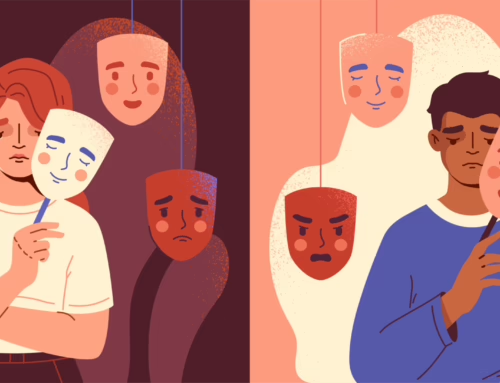What Does It Mean to “Crash Out”? From Social Media to Sobriety, Understanding the Signs and Getting Help
If you’ve been on TikTok or Instagram lately, you may have seen the phrase “crashing out” used casually—often referring to someone making impulsive, self-destructive choices that lead to serious consequences. But for those in the mental health and addiction recovery world, crashing out is more than just a viral moment or meme. It’s a very real, very painful experience.
Whether you’re seeing it online or living it in real time, crashing out means someone has hit a breaking point—and is reacting in ways that put their progress, stability or safety at risk.
The Social Media Meaning of “Crashing Out”
On platforms like TikTok, “crashing out” is often used to describe:
- Sudden, self-sabotaging behavior (e.g., quitting a job with no backup plan, ending a relationship impulsively)
- Making a wild decision in the heat of the moment
- Acting out of emotion or ego, often in public or dramatic ways
- Someone “ruining the bag” (losing an opportunity, income or social status)
It’s often said jokingly, but there’s an undertone of recognizing self-destruction—someone acting in a way that takes them off their path, usually fast and without much thought.
What “Crashing Out” Means in Recovery
In the recovery world, crashing out is a serious event. It usually refers to someone:
- Relapsing after a period of sobriety
- Leaving a treatment program or sober living unexpectedly
- Abandoning their support system and coping strategies
- Returning to high-risk environments or relationships
Crashing out in this context can be life-threatening, especially for those in early recovery from substance use. It often follows emotional overwhelm, untreated mental health symptoms, or a buildup of stress, fear or shame.
Why Do People Crash Out?
Whether online or in real life, crashing out is usually a sign that someone is:
- Feeling cornered, misunderstood or hopeless
- Experiencing untreated trauma or mental illness
- Facing overwhelming pressure or expectations
- Lacking emotional tools to cope with what they’re feeling
- Trying to escape rather than deal
In both cases, the behavior may look chaotic on the outside—but inside, there’s often deep pain, fear or unmet emotional needs driving the crash.
What Happens After Someone Crashes Out?
It’s not uncommon to feel:
- Ashamed or embarrassed
- Disconnected from support systems
- Like you’ve “blown it” and can’t come back
- Afraid to ask for help again
But here’s the truth: crashing out doesn’t mean you’re a failure. It means you’re struggling—and struggle is part of recovery, not the end of it.
How to Get Help After a Crash Out
If you or someone you love has crashed out—whether from a treatment program, a job or just life—help is still available. Here’s what you can do:
- Reach out, even if it feels hard
Call a therapist, a sponsor, a trusted friend—someone who won’t judge, but will listen.
- Own what happened without punishing yourself
Accountability is powerful. Shame isn’t helpful—but honesty is.
- Reconnect with structure
Whether it’s returning to treatment, joining a support group or building a daily routine, structure helps stabilize emotions.
- Reflect, don’t retreat
What led to the crash? What warning signs did you ignore? Learning from experience helps you grow stronger.
- Give yourself permission to start again
Recovery is not a straight line. Crashing out is a detour—not the end of the road.
You’re Allowed to Come Back
Whether it’s a public meltdown or a private relapse, crashing out is a human response to pain. But it doesn’t have to define you. You are not too far gone, and you are not beyond help.
At Tapestry, we understand what it means to fall—and we specialize in helping people rise again. If you’ve crashed out, or feel like you’re on the edge, we’re here to walk with you through it—without shame, without judgment and with real tools for healing.
Because recovery isn’t about being perfect. It’s about finding your way back—even when things fall apart.






